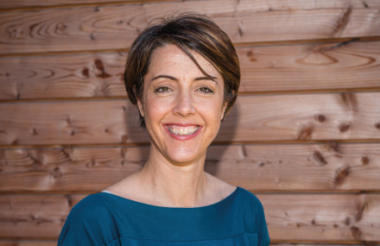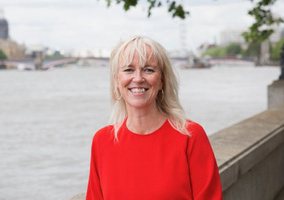Charities need to create compassionate organisations by being transparent and making spaces where people feel comfortable telling the truth, the CEO of the Alzheimer’s Society said this morning.
Kate Lee was delivering the opening keynote at Civil Society’s Spring Summit. She said she had been “really shocked and saddened” by stories of bullying and harassment across the sector.
However, she said she does not focus on “extreme cases” which are “at the sharp end of something that's probably been going wrong for a little while”.
Instead, she said: “I'm more curious about cultures which have become kind of subservient, and where the term ‘compassion’ has become an excuse for not challenging even mild acts of poor performance and bad behaviour.”
'Compassion can have a dark side'
Lee’s said her personal theory is that “our superpower if left unchecked, causes the problem”. That is the “inherent compassion” in charities that can have a “dark side”.
“At best it can create this kind of occasional paralysing empathy, and at worst, it becomes really fertile soil for potentially more serious abuse,” she said.
She said charities are particularly at risk because a lot of people in the sector are “natural rescuers”, so their personal worth is based on the help they provide to others and being useful. This means at times they may be “uncomfortable around conflict” and worried about embarrassing and upsetting others.
“What happens is that stewing starts to manifest into quite passive-aggressive behaviour, which can leak out in terms of sulking and behaviour that if you're on the receiving end of it can be really confusing – and can be considered bullying,” she said.
Therefore, Lee thinks charities need to help people who are “uncomfortable about raising concern” and create transparent cultures.
“Truth and honesty, and transparency in our organisation is so important for creating a kind and compassionate one,” she said.
People must be given opportunities to give honest feedback, she advised, otherwise “there are real risks to diversity and inclusion and innovation, and even safety in our organisations when people don't feel confident in being able to speak out”.
Lee added: “In that space, we end up with cultures that neither challenge or care about our colleagues. This is where I believe bullying happens, it's where passive-aggressive behaviours play out rather than dealing with problems head-on.”
She said: “We actually do not need to build more love, we need to build more truth.”
Care about the cause but don’t overlook the people
Lee also said there is a perception that charities are places where everyone cares deeply about each other, when in fact “we actually care deeply about our cause”.
“I think that becomes a red herring,” she said, adding that “once that [solely cause-focused] culture is allowed to grow in an organisation, there is already a problem”.
She warned that “the culture will quickly begin to unravel”, so it is really important to remember that staff and volunteers in the charity sector need a healthy culture, even though they are bonded by a commitment to the cause.
Role model how to receive feedback
Lee said charities need to role model how to receive feedback – “how to genuinely and consistently create open spaces where in our organisations we can hear the dissenting voice”.
She said that for many people in the voluntary sector, this is way outside their comfort zone, and that “it's exhausting to be in this space of challenging directly when it is not our natural comfort zone.” However: “If we want to increase truth in our most organisations we need to do that, explicitly, and in order to do that we must make the organisation safe.”
“We must as leaders acknowledge that we've heard and we care, even if for a really good reason we can't act,” she added.
She concluded: “For me, compassionate organisations are ones that have both truth and love. We cannot assume that kind people make compassionate organisations, without support, without role modelling, without really good leadership.
“We need to constantly think about what are the worst behaviours we allow, because that is the culture that we will create. And similarly, what we do, not what we say, tells people what we really value in a sector with a huge propensity to care. The route to a more compassionate organisation is to build transparency, honesty, openness and direct challenge, but accept that this will take people out of their comfort zone.”
She added: “That takes honesty, feedback, challenge and making space for the dissenting voice. And that, for a natural rescuer, is a little bit scary, but so well worth it.”
Related articles












